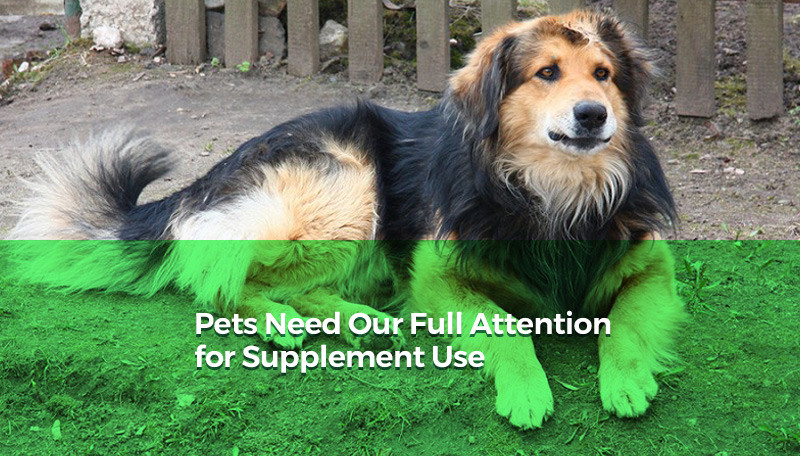Many of us, perhaps even most of us, are vigilant and diligent when it comes to using vitamins and supplements to enhance our health and enjoyment of life. It's also incumbent on us to exercise equal diligence in caring for our pets, especially those of us with dogs and/or cats. Dogs, as we all know, need love, too, and showing that love may mean giving them supplements and vitamins – when needed. For this particular column, we're going to focus on dogs and the millions of Americans who are devoted dog owners. Not only are health experts and scientists spending more time researching the benefits and, yes, risks of vitamins and supplements for people, they are doing the same thing for dogs and other animals. This research isn't just about aging issues for dogs; it also is about enhancing their quality of life by finding better ways to treat them for conditions such as obesity, arthritis and other types of joint pain as well as inflammation, excessive shedding, lack of energy and even cognitive dysfunction. Over the last several years, the U.S. pet supplements market has shown a resurgence after a sluggish-economy slowdown during the early 2010's on the heels of a national recession. Per prnewswire.com, the uptick in spending for pet supplements was tracked for an increase from $541 million in 2015 to near $700 million in 2019. This was one of the findings published in Pet Supplements in the U.S., 5th Edition, a report courtesy of research publisher Packaged Facts. Products related to a dog's joint health, as of 2015, was the No. 1 supplement group for pets in terms of sales, per nutraceuticalsworld.com. Just like with humans, pets are living longer, and with that comes age-related problems that beg for pet guardians' full attention and awareness. This means not only buying the right kinds of foods – and that includes careful examination of nutritional info on food packaging – but knowing which supplements to buy to complement Bowser's or Princess's normal diet. Veterinarians, by the way, are also opening their minds more to supplement use as a viable alternative to animal drugs. One cautionary note sounded by vets and directed at pet owners is to use supplements with discretion. Stick to veterinary guidance and don't go overboard by exceeding recommended dosages. Sound familiar? Don't forego traditional therapies, especially if it's a life- or organ-threatening illness for your pet, says Dawn M. Boothe, DVM, MS, PhD, director of the clinical pharmacology lab at the Auburn University College of Veterinary Medicine, quoted at pets.webmd.com. Make sure you stick with a standard of care and use the supplements as they were intended, as supplements. Before giving your dog any supplements beyond what is in their regular food, owners are reminded to research the ingredients in their dog's food to ensure they are not giving their dog(s) an excess dose of supplements(s). You know what they say about too much of a good thing. As always, consultation with a vet on behalf of your pet is something to take to heart, not just yours, but the dog's as well. Here are some suggestions for, per petmd.com, treehugger.com and peteducation.com; ingredients worth considering, with the understanding, again, that you will discuss the use – and a dog's need – for any of these with your friendly veterinarian:
- Alfalfa :: A herb considered especially beneficial for the kidney with perhaps an added boost to the dog's immune system. Loaded with protein and numerous vitamins and minerals.
- Chromium :: Plays a part in regulating the metabolism of proteins, fats and carbohydrates. Also being studied for weight loss and control of glucose in those with diabetes.
- Coenzyme Q10 :: Described as essential for production of energy at the cellular level.
- Cranberry juice (unsweetened) :: Can help cut down on blockages or infections that might impede urination. It does this by bolstering urine acidity.
- Vitamin E :: Can be applied to the pup in oil form to help with dry skin.
- Milk Thistle :: Deemed as a compound that can protect and even bolster the function of the dog's liver.
- Valerian :: One of several herbs that, as a natural relaxant, is good for treating a hyper dog.

